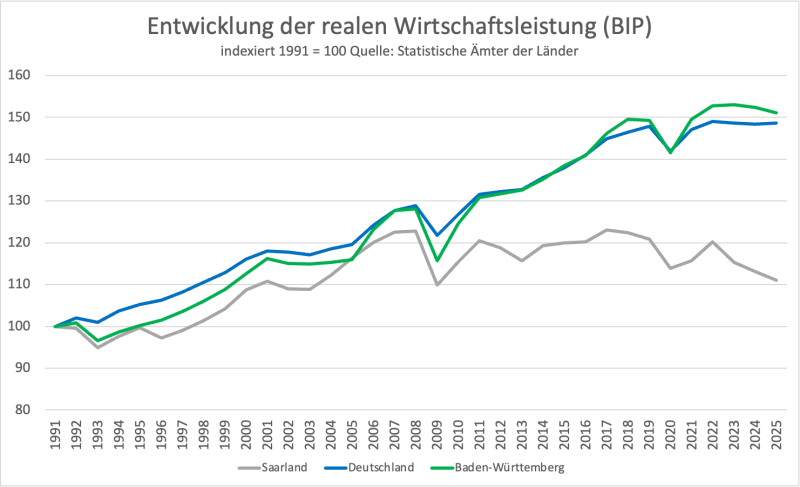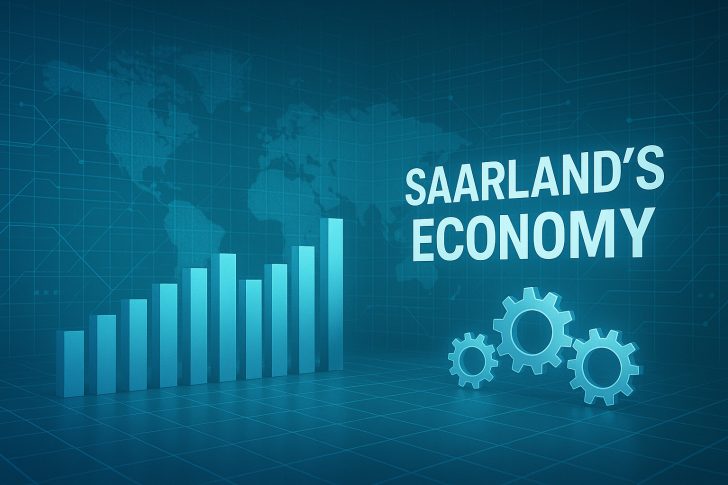Not all German regions are benefiting equally from the country's economic progress. While Germany has experienced steady GDP growth since 1991, and Baden-Württemberg has consistently outpaced the national average, Saarland tells a different story entirely. The region's economic output in 2025, when adjusted for inflation, has tumbled back to 2009 financial crisis levels — making it Germany's worst-performing region economically.
Chart Analysis: A Tale of Three Economies
The chart, indexed to 1991 = 100, reveals stark differences in real GDP growth across three entities. According to trader Daniel D. Eckert, this data paints a concerning picture for the region.

Germany's national economy demonstrates consistent long-term growth, climbing to approximately 150 index points by 2025. Baden-Württemberg tells an even more impressive story, consistently outperforming the national average and reaching over 155 index points in recent years, driven by robust automotive and machinery sectors. Saarland, however, presents a troubling narrative - while initially keeping pace with national growth, the region began diverging after 2000, and by 2025, its index has crashed to around 100, effectively erasing more than a decade of economic progress.
The Root of Saarland's Struggles
Several structural problems explain this dramatic underperformance. Heavy reliance on traditional industries and automotive manufacturing has left Saarland exposed to energy transitions and global competition pressures. The region faces serious demographic headwinds, with population decline and aging reducing both labor supply and domestic demand. Unlike Baden-Württemberg, Saarland lacks diversification and has few globally competitive innovation leaders. Investment levels, both public and private, consistently lag behind other regions, limiting modernization efforts and overall competitiveness.
What This Means for Germany
Saarland's trajectory exposes the growing economic divide between German regions. While innovative, export-oriented states continue to thrive, older industrial areas risk permanent marginalization. This widening gap threatens Germany's overall economic cohesion and could undermine national competitiveness in the long run.
The Path Forward
Saarland's regression to 2009 GDP levels represents more than just a regional problem — it's a warning signal for Germany's economic future. The region desperately needs targeted investment, comprehensive industrial transformation, and better integration into the high-tech economy. Without bold action, Saarland risks becoming permanently stuck as Germany's economic underperformer while other regions surge ahead.
 Saad Ullah
Saad Ullah

 Saad Ullah
Saad Ullah


